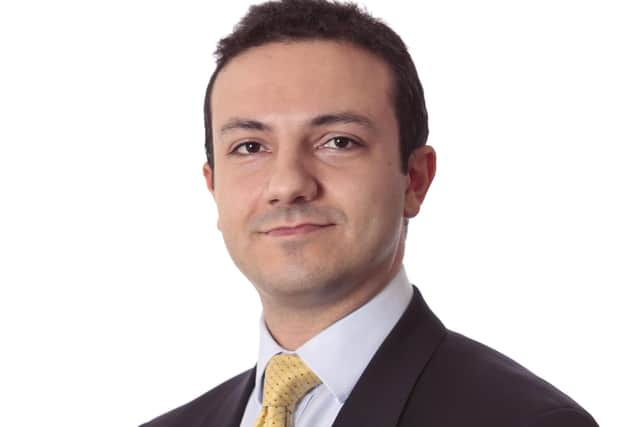Patient investors should be able to reap rewards - Evangelos Assimakos
Keen to avoid rising inflation expectations becoming engrained in consumers’ psyches, central banks have embarked on a journey of hiking interest rates in the hope that a rising cost of borrowing and higher returns on savers’ bank deposits will dampen demand for goods. However, just like cutting interest rates acted as a shot of adrenaline for the economy and, by extension, the investment world, rising rates are acting like a cold shower of reality that forces investors to wake up from their ‘animal spirits’ stupor and reassess their positions. Needless to say, the last eight or so months have been very difficult for anyone with savings invested in the stock market or indeed the bond market. In a rising interest rate environment beset by uncomfortably high levels of inflation, both major asset classes struggle and often lose value. Unsurprisingly, areas that became the posterchildren for the cheap-money years of the recent past (cryptocurrencies and other highly speculative investments with no fundamental underpinning or reliable cash flow stream) have suffered the worst of all.
Savers are now faced with a very difficult choice: do they keep their cash in the bank where inflation is highly likely to erode its purchasing power over time or do they invest it at a time when even the traditional ‘safe haven’ of government bonds is nursing heavy losses and stock markets feel even more vulnerable to further weakness? Like anything in life, balance is necessary, and individual circumstances differ, calling for a tailored solution in each case. However, some things apply to all and they should be considered carefully.
Advertisement
Hide AdAdvertisement
Hide AdFirst of all, at a time when the cost of most goods and services is trending higher and it is hard to know when the trend will at least moderate, some additional contingencies in the form of easily accessible cash may be prudent. At a time of great market turbulence, you do not want to find yourself short for next month’s energy bill and having to sell down your stocks to fund it. Investing in the stock market is always said to be a long-term pursuit but this is never more so the case than during times like the ones we are currently experiencing.


For individuals who have managed to put aside enough cash to account for this inflationary environment but still find themselves with surplus savings, it would definitely make sense to consider investing. The ultimate mix between stocks, bonds and other investment types should be determined by their ‘stomach’ for risk but crucially also their ability to weather losses in their investments without it affecting their standard of living. In such a treacherous market environment, the quality of a business shines through and this should be the most important attribute investors seek out. High levels of inflation amid a slowing economy will most certainly push weaker businesses to the brink of bankruptcy over the coming months while stronger businesses will emerge with an increased share of the market and higher profits. Active management of one’s investment choices is of paramount importance during this time as passive investors who invest in the entirety of a stock market will not be able to benefit from that distinction in fortunes.
Although the current environment may feel challenging at times for consumers and investors alike, it is worth remembering a couple of lessons that history has taught us time and time again in the past: nothing lasts forever, and it is right after such poor market environments that the stage for super-normal returns could be set for discerning and patient investors.
Evangelos Assimakos, Investment Director, Rathbones
Comments
Want to join the conversation? Please or to comment on this article.